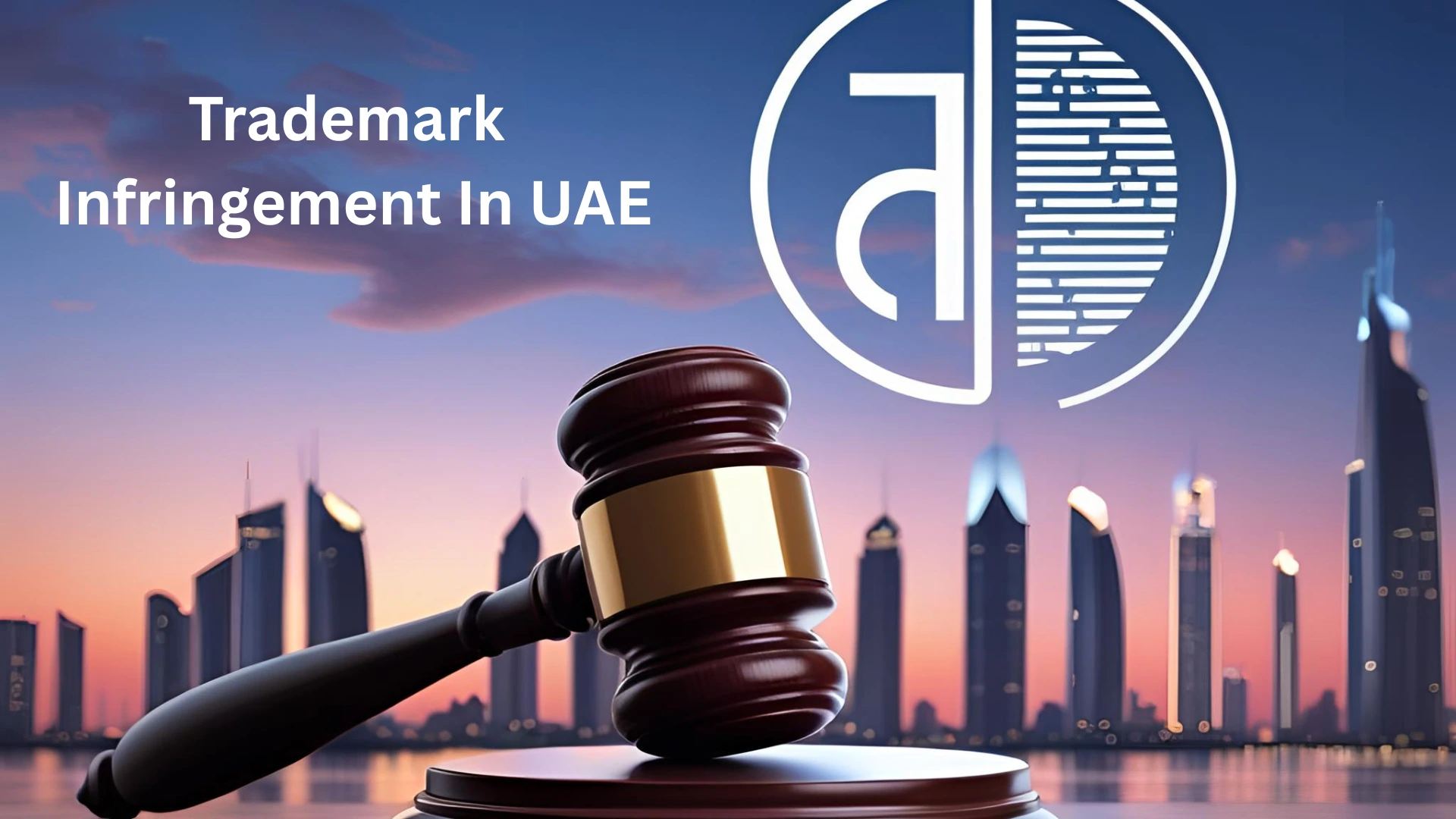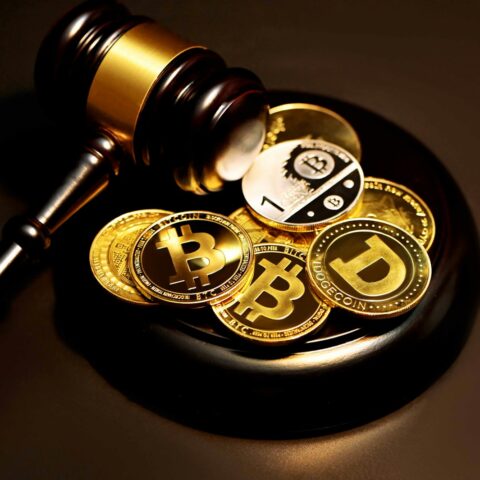Guide To Trademark Infringement In The UAE: From Detection To Legal Action

For any business, its brand is one of the most valuable assets. In premier economic hubs like the UAE, where business is dynamic and highly competitive, trademarks play a significant and indispensable role in brand perception and protection. Comprising distinctive forms such as names, figures, graphics, titles, logos, hallmarks, seals, patterns, and more, a trademark in the UAE is governed by the Federal Decree Law No. 36 of 2021 on Trademarks (UAE Trademark Law), regulating its registration, use, protection, and cancellation. The UAE Trademark Law also includes provisions to safeguard the intellectual property rights of business owners in cases of trademark infringement.
When Does Trademark Infringement Occur?
A trademark is a symbol that distinguishes a product or a business from others, making distinctiveness a necessary requirement. Trademark infringement occurs when a third party uses a mark that is identical or confusingly similar to an existing registered trademark, with the potential to mislead or confuse consumers about the origin of goods or services. Key scenarios include:
- Unauthorized Usage of a Mark: The owner of a registered trademark possesses the exclusive right to use it. Any use by a third party without explicit consent infringes upon and diminishes the value of their mark.
- Identical or Confusingly Similar Marks: Registering or using a mark that is deceptively similar to an existing one can cause confusion or mislead consumers about the origin of the goods or services. The core test revolves around the “likelihood of confusion” among the public, considering visual, phonetic, and conceptual similarities, as well as the similarity of goods/services and channels of trade, as applicable.
- Imitation of Well-Known Trademarks: Copying or imitating a well-known trademark, even for unrelated goods or services, can lead consumers to perceive an unauthorized connection between such offerings and the business of the well-known trademark. Well-known marks enjoy broader protection due to their established reputation.
How To File a Trademark Infringement in the UAE?
Article 17(2) of the UAE Trademark Law (36 of 2021) explicitly states that the owner of a registered Trademark shall have the right to prevent third parties from using it or using any Trademark similar or identical thereto, without his consent, to distinguish goods or services related to those for which the Trademark was registered, whenever such use may cause confusion among the public if the same or similar Trademark is used to distinguish goods or services similar to those for which the Trademark was registered.
The owner of a registered trademark can file a complaint against any person who forges or copies the trademark, as outlined below:
- Identify the Trademark Infringement: The complainant should carefully compare the allegedly infringing mark with your registered trademark, check for confusing similarities, and determine if the goods or services involved are identical or related. Once an infringement is confirmed, relevant evidence such as copies of advertisements, product labels, packaging, or other materials displaying the infringing trademark should be collected.
- Cease and Desist Letter: Before submitting an official complaint, the complainant may draft and send a formal cease and desist notice letter to the alleged infringer, detailing the infringement, and claiming rights, demanding that they cease using the mark. These letters can often resolve disputes amicably and prevent the need for further legal proceedings.
Note: Given the legal implications and the need for precision, such cease and desist letters are crucial legal instruments and should always be well-drafted with the help or consultation of an experienced Intellectual Property (IP) lawyers.
- Registering a Complaint with the Trademarks Office: If the infringing party fails to respond or comply with the cease-and-desist letter, you can formally submit your grievance by filing an application with the Trademarks Office.
- Prepare required Documents: When filing, ensure you have the following documents prepared and available:
- Trade license of the business issued by the UAE government;
- Power of Attorney issued in favour of the Law Firm;
- Well drafted Complaint document;
- Other additional documents as maybe required.
Once submitted, the application is forwarded to the relevant department for review. An investigation will be carried out, and the Trademark Office shall investigate the dispute and take action against the infringer. The applicant will be officially informed of the decision.
Precautionary measures upon infringement of the rights of the trademark owner
Article 47 of the UAE Trademark Law allows the owner of a registered trademark to apply for precautionary measures from the judge of summary matters at the civil court having jurisdiction. These measures are crucial for immediate intervention and can include:
- Preparing a detailed description of the infringement.
- Attach the materials, tools and equipment and the proceeds resulting from the infringement.
- Prevent the goods or services being the subject matter of the infringement from being exported, imported or being entered in the commercial channels.
- Preserve all the relevant evidence related to the subject matter of the infringement.
The judge of summary matters is required to decide on the request within 10 days of filing. If measures are issued without summoning the infringer, the infringer may file an objection within 15 days of notification. Crucially, once precautionary measures are granted, the right holder must file the main lawsuit within 20 days of the judge’s order. Failure to do so may result in the precautionary order being cancelled at the infringer’s request.
Penalties for Infringement and Claim for Compensation
The UAE Trademark Law, under Articles 49-52, imposes significant penalties for trademark infringement. Acts such as registering counterfeit trademarks, imitating a mark in a way that misleads the public, knowingly using a counterfeited or imitated trademark for commercial purposes, or affixing a trademark belonging to others in bad faith, can incur a penalty of imprisonment and/or a fine ranging from AED 100,000 to AED 1,000,000. Repeat offenders may face doubled penalties and even the complete closure or suspension of their business activities.
The owner of the trademark may also file a lawsuit with the Civil Court to seek compensation in accordance with the general rules for infringement (Article 48 of Trademark Law).
Why protect your trademark from infringement?
Often called the identity and face of a brand, a trademark plays a crucial role for all businesses. Protecting your trademark against infringement is essential to safeguard your business in multiple ways:
- Protects your brand identity and reputation.
- Safeguards your market position.
- Prevents consumer confusion.
- Avoids financial losses due to similar or identical marks.
Proactive Measures and Enforcement Channels
While reacting to infringement is necessary, proactive measures offer greater long-term protection:
- Trademark Watch Services: Engage legal professional services to monitor new trademark applications and market activities, enabling early detection of potential conflicts and timely opposition.
- Regular Market Surveillance: Actively monitor physical marketplaces, e-commerce platforms, and social media for unauthorized use of your trademark, especially given the rise of online counterfeiting.
- Customs Recordation: Registering your trademark with UAE Customs allows them to intercept and seize counterfeit goods at the borders, preventing their entry into the market.
- Administrative Actions: Utilize the authority of the Ministry of Economy and the Department of Economic Development, which can investigate complaints, impose fines, and order the destruction or confiscation of infringing products.
- Criminal Actions: For severe cases of counterfeiting and fraudulent activities, criminal complaints can be filed with the police, leading to criminal proceedings, substantial fines, and imprisonment.
- International Protection: For businesses with global ambitions, leveraging agreements like the Madrid Protocol simplifies trademark protection across multiple member countries.
A trademark is important in helping your business confidently establish a strong and unique brand identity. Handling instances of trademark infringements efficiently safeguards your brand’s future. Given its intricacies and the multi-faceted legal avenues available, seeking professional legal help when submitting a trademark grievance is not just recommended, but often indispensable for achieving a favorable outcome and ensuring comprehensive protection.
By entering the email address you agree to our Privacy Policy.



